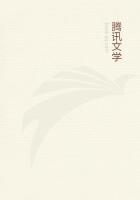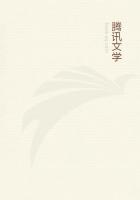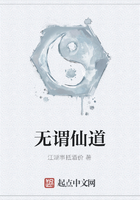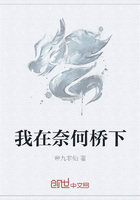From the moment of my departure from Paris on the 2d of August, 1792, the tragedy hastened to its denouement. On the night of the 9th, the tocsin was sounded, and the King and the Royal Family looked upon their fate as sealed. Notwithstanding the personal firmness of His Majesty, he was a coward for others. He dreaded the responsibility of ordering blood to be shed, even in defence of his nearest and dearest interests. Petion, however, had given the order to repel force by force to De Mandat, who was murdered upon the steps of the Hotel de Ville. It has been generally supposed that Petion had received a bribe for not ordering the cannon against the Tuileries on the night of the 9th, and that De Mandat was massacred by the agents of Petion for the purpose of extinguishing all proof that he was only acting under the instructions of the Mayor.
I shall not undertake to judge of the propriety of the King's impression that there was no safety from the insurgents but in the hall, and under the protection of the Assembly. Had the members been well disposed towards him, the event might have proved very different. But there is one thing certain. The Queen would never have consented to this step but to save the King and her innocent children. She would have preferred death to the humiliation of being under obligations to her sworn enemies;but she was overcome by the King declaring, with tears in his eyes, that he would not quit the palace without her. The Princesses Elizabeth and de Lamballe fell at her feet, implored Her Majesty to obey the King, and assured her there was no alternative between instant death and refuge from it in the Assembly. "Well," said the Queen, "if our lot be death, let us away to receive it with the national sanction."I need not expatiate on the succession of horrors which now overwhelmed the royal sufferers. Their confinement at the Feuillans, and their subsequent transfer to the Temple, are all topics sufficiently enlarged upon by many who were actors in the scenes to which they led. The Princesse de Lamballe was, while it was permitted, the companion of their captivity. But the consolation of her society was considered too great to be continued. Her fate had no doubt been predetermined; and, unwilling to await the slow proceedings of a trial, which it was thought politic should precede the murder of her royal mistress, it was found necessary to detach her from the wretched inmates of the Temple, in order to have her more completely within the control of the miscreants, who hated her for her virtues. The expedient was resorted to of casting suspicion upon the correspondence which Her Highness kept up with the exterior of the prison, for the purpose of obtaining such necessaries as were required, in consequence of the utter destitution in which the Royal Family retired from the Tuileries. Two men, of the names of Devine and Priquet, were bribed to create a suspicion, by their informations against the Queen's female attendant. The first declared that on the 18th of August, while he was on duty near the cell of the King, he saw a woman about eleven o'clock in the day come from a room in the centre, holding in one hand three letters, and with the other cautiously opening the door of the right-hand chamber, whence she presently came back without the letters and returned into the centre chamber. He further asserted that twice, when this woman opened the door, he distinctly saw a letter half-written, and every evidence of an eagerness to hide it from observation.
The second informant, Priquet, swore that, while on duty as morning sentinel on the gallery between the two towers, he saw, through the window of the central chamber, a woman writing with great earnestness and alarm during the whole time he was on guard.
All the ladies were immediately summoned before the authorities. The hour of the separation between the Princess and her royal friend accorded with the solemnity of the circumstance. It was nearly midnight when they were torn asunder, and they never met again.
The examinations were all separate. That of the Princesse de Lamballe was as follows Q. Your name?
A. Marie-Therese-Louise de Savoy, Bourbon Lamballe.
Q. What do you know of the events which occurred on the 10th of August?
A. Nothing.
Q. Where did you pass that day?
A. As a relative I followed the King to the National Assembly.
Q. Were you in bed on the nights of the 9th and 10th?
A. No.
Q. Where were you then?
A. In my apartments, at the chateau.
Q. Did you not go to the apartments of the King in the course of that night?
A. Finding there was a likelihood of a commotion, went thither towards one in the morning.
Q. You were aware, then, that the people had arisen?
A. I learnt it from hearing the tocsin.
Q. Did you see the Swiss and National Guards, who passed the night on the terrace?
A. I was at the window, but saw neither.
Q. Was the King in his apartment when you went thither?
A. There were a great number of persons in the room, but not the King.
Q. Did you know of the Mayor of Paris being at the Tuileries?
A. I heard he was there.
Q. At what hour did the King go to the National Assembly?
A. Seven.
Q. Did he not, before he went, review the troops? Do you know the oath he made them swear?
A. I never heard of any oath.
Q. Have you any knowledge of cannon being mounted and pointed in the apartments?
A. No.
Q. Have you ever seen Messrs. Mandat and d'Affry in the chateau?
A. No.
Q. Do you know the secret doors of the Tuileries?
A. I know of no such doors.
Q. Have you not, since you have been in the Temple, received and written letters, which you sought to send away secretly?
A. I have never received or written any letters, excepting such as have been delivered to the municipal officer.
Q. Do you know anything of an article of furniture which is ****** for Madame Elizabeth?
A. No.
Q. Have you not recently received some devotional books?
A. No.
Q. What are the books which you have at the Temple?
A. I have none.
Q. Do you know anything of a barred staircase?
A. No.

